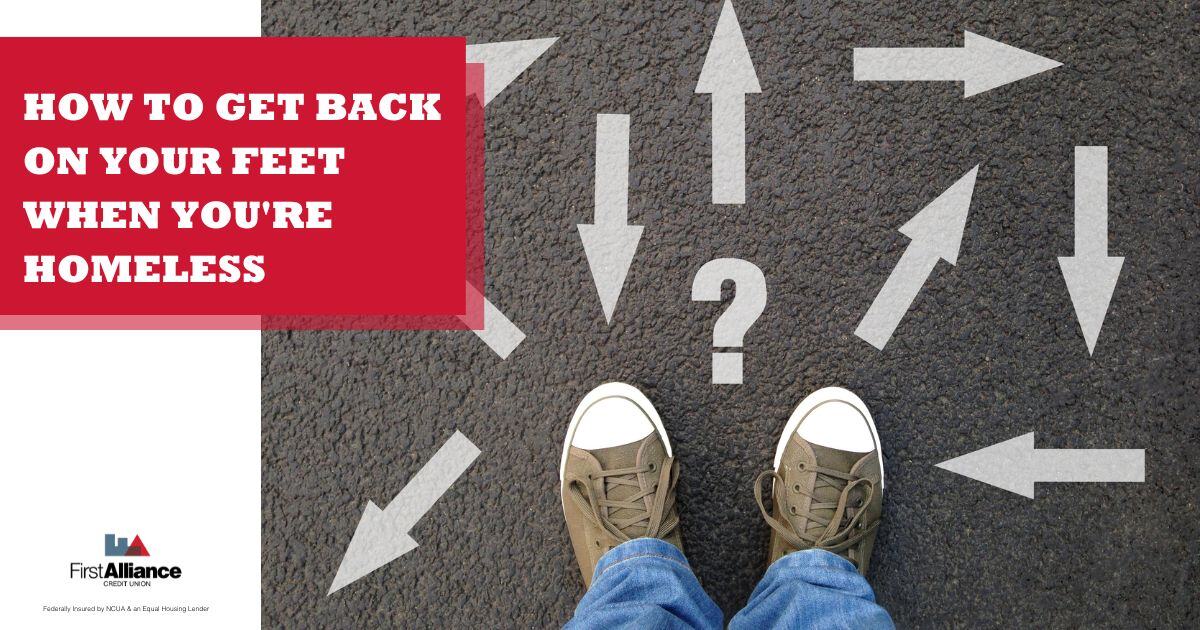How To Get Back On Your Feet With No Money

Losing everything and finding yourself without financial resources can feel like an insurmountable obstacle, but it's a situation many people face. Navigating this challenge requires resourcefulness, strategic planning, and a willingness to accept help.
This article explores practical steps to regain stability and independence when starting from zero, drawing on advice from financial experts and social service organizations.
Immediate Needs and Safety
The first priority when facing financial ruin is securing basic necessities: shelter, food, and safety. Contacting local shelters and homeless service providers should be the initial step.
Organizations like the U.S. Department of Housing and Urban Development (HUD) can connect individuals with emergency housing assistance programs. Food banks and soup kitchens, often run by charities like Feeding America, offer immediate relief from hunger.
Safety is paramount. Consider staying with trusted friends or family if possible, even temporarily. If that isn't an option, identify safe public spaces where you can spend time during the day.
Accessing Government Assistance Programs
Several government programs are designed to assist individuals facing hardship. Supplemental Nutrition Assistance Program (SNAP), often called food stamps, provides financial assistance for purchasing groceries.
Temporary Assistance for Needy Families (TANF) offers cash assistance and support services to families with children. Eligibility requirements vary by state, so contacting your local social services agency is crucial.
Medicaid provides health insurance coverage for low-income individuals and families. The Healthcare.gov website offers information about Medicaid eligibility and enrollment in your state.
Job Search and Skill Development
Finding employment is essential for long-term financial stability. Begin by updating your resume and practicing interview skills.
Many community centers and libraries offer free computer access and job search assistance. Workforce development agencies provide training programs and connect job seekers with potential employers.
Consider exploring temporary or part-time jobs to generate immediate income. Online platforms like Upwork or Fiverr can offer freelance opportunities, even with limited skills.
Building Skills and Credentials
Investing in skills development can significantly improve your job prospects. Look for free or low-cost online courses offered by platforms like Coursera or edX.
Community colleges often offer affordable certificate programs in high-demand fields. Consider pursuing a certification in a trade or skill that interests you and aligns with local job market needs.
Volunteering can be a valuable way to gain experience and build your network. It also demonstrates a strong work ethic and commitment to self-improvement.
Financial Planning and Budgeting
Even with limited income, creating a budget is essential for managing finances effectively. Track your expenses and identify areas where you can cut back.
Prioritize essential bills like rent or mortgage, utilities, and food. Contact creditors to discuss payment options or explore debt relief programs.
Avoid taking out high-interest loans or payday loans, as these can quickly lead to a cycle of debt. Explore alternative financial solutions like microloans or community development financial institutions (CDFIs).
"Financial literacy is key to breaking the cycle of poverty. Understanding how to manage money, save effectively, and avoid debt is crucial for long-term financial stability," explains Anna Ramirez, a financial advisor at the National Foundation for Credit Counseling.
Seeking Support and Guidance
Don't hesitate to seek help from trusted friends, family, or professionals. A strong support network can provide emotional encouragement and practical assistance.
Nonprofit organizations like the United Way offer a wide range of services, including financial counseling, housing assistance, and job training. Connecting with a mentor or coach can provide valuable guidance and support.
Remember that rebuilding your life takes time and effort. Celebrate small victories and stay focused on your long-term goals.
The Path Forward: A Story of Resilience
Maria Rodriguez, a single mother of two, lost her job during the pandemic and faced eviction. She initially felt overwhelmed and hopeless.
However, Maria reached out to her local community center, where she received assistance with housing, food, and job training. She enrolled in a free online course and gained new skills.
Within a few months, Maria secured a stable job and regained her independence. Her story highlights the power of resilience and the importance of accessing available resources.
The journey back from financial hardship is challenging, but it is possible. By focusing on immediate needs, accessing government assistance, developing new skills, and seeking support, individuals can regain control of their lives and build a brighter future.


















